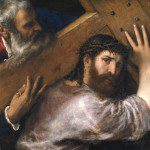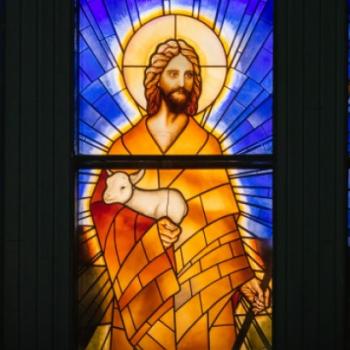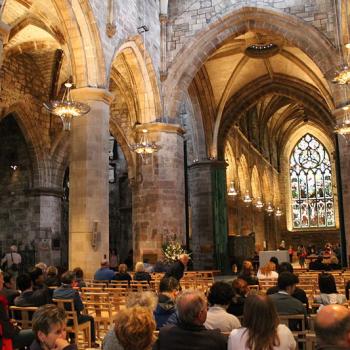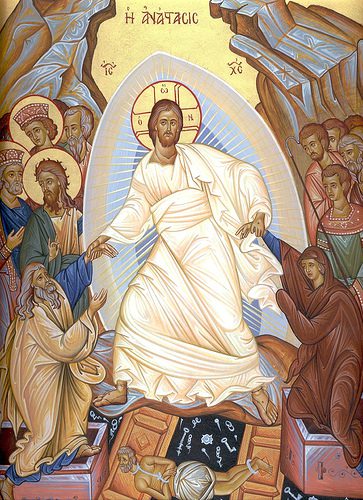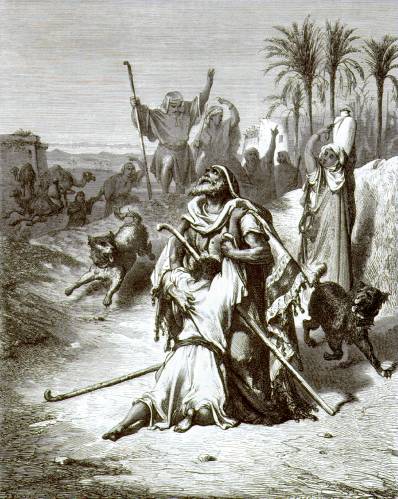
by Fabio Hurtado
We live, in fact, in a world starved for solitude, silence, and privacy, and therefore starved for meditation and true friendship.
— C.S. Lewis
It was almost a year ago when during a meeting – I use that term loosely to describe four friends gathering at a local pub to drink draft beer and talk through theology and life – that we faced this question: If God is a loving father why would he abandon his children and not show himself to those he claims to love?
The logic behind this question is that a loving father is around to share in the lives of his children. If he is a father then the most important thing a father can do is to be present. In a sense, presence is the defining role of fatherhood. By all apparent standards, and since he does not appear to us early each morning, God is at best an absent, aloof, distant, and cold father. It seems he lacks the essence of fatherhood: presence.
It has taken me some time to pray through this question. What I am about to offer is not a theological treatise; this is, I hope, a response to a question posed by a friend, albeit one who does not share my faith.
A year is a long time to take to offer a response, but I have taken time, during Mass and at other times of prayer, to ask God to reveal a response, to reveal His response. I have knocked annoyingly on his door, trusting that persistence is the greater part of holiness.
Please understand, I desperately wanted God’s answer to this question for myself, as a father, and as a son. I offer this reflection to you in the spirit of communication and friendship, not in the desire to proselytize nor to convert.
We are, after all, among friends.
Woe to you, teachers of the law and Pharisees, you hypocrites! You give a tenth of your spices — mint, dill and cumin. But you have neglected the more important matters of the law — justice, mercy, and faithfulness. You should have practiced the latter, without neglecting the former. — Matthew 23:23
I love this verse from Mathew’s gospel, where we find the both/and mentality of Jesus. He was not an either/or person. He is asking here for both the practicing of complex abstract ideas like justice and mercy in our daily life, while still following the concrete letter of the law. Any prophet can choose the life-giving spirit over the just letter of the law. The Son of God wants both: mercy and justice. You take care of the tenth of mint and you practice mercy and faithfulness. So much like a true father: you feed and clothe your kids and you also teach them the higher ideals in life: love, justice, kindness. Without both, your child starves – one way or another.
God’s response to the question about being absent is both simple and complex: Jesus.
God loves a paradox. In a paradox he can have us hold the tension of two seemingly contradictory statements. When finite beings try to deal in God (infinite) language there will always be inherent contradictions, so God needs to have us live in the paradox.
Here is the deal: before I knew Jesus, I would have agreed completely with the statement that God is absent from the world.
I mean, it’s obviously true. I don’t see the dude the way I see you. But after I met Jesus – that sounds weird, right? – I realized that God had been with me all along. In Jesus, God silences all the noise about him being an absent father.
So two questions: how does he do that, and how can I ever realize it before meeting Jesus?
If you asked a believer to summarize the good news I think most folks would go right to John 3:16. Because God loved the world — because he wanted to be present in the lives of his children — he sent Jesus. And then Jesus died on the Cross and blah, blah, blah. I mean, you have heard this already and it does not move you. Right?
Because, still, where is he?
I’ll let Tolkien answer that, since he is a crowd favorite in our group. This piece is from one of Tolkien’s letters to his son:
Out of the darkness of my life, so much frustrated, I put before you the one great thing to love on earth: the Blessed Sacrament…There you will find
romance, glory, honour, fidelity, and the true way of all your loves on earth.
The Blessed Sacrament, the Eucharist, is Christ literally present today, this moment, on planet Earth. God is literally present in every tabernacle in every church under the appearance of piece of flat bread wafer. And yet all we see is a wafer — he is apparently not there.
The Eucharist is Jesus fulfilling his promise to be with us until the end of time. Yet, it is God respecting our freedom to accept Him without overwhelming us with his appearance.
It is God doing what a father must do: being fully present. Yesterday. Today. Eternally.
That is why Tolkien is so excited about the Eucharist. It is why he shares this with his son. A father sharing the Son with his son! That’s true presence. Fatherhood.
Any cheap conjurer can make things appear when they are not truly there (a penny, a card trick) or make them disappear (the Statue of Liberty) when they are there. The God of the universe wants both: to both be present and appear not to be present at the same time.
So, second question: How can I realize God’s presence before meeting Jesus?
Speaking for myself, I cannot imagine it.
It would be like asking to feel like a son, without actually accepting that you are one.
It’s like wanting to feel loved by a father you don’t recognize as one.
When the prodigal son leaves the father and walks away, he does not have sonship. As soon as he begins to walk back, the father returns his sonship. He meets him on the way back and mercy begins, and the pain of not being a son stops.
A son who does not need a father is a tough son to father.
When does a son need a father? When he is playing in his first ball game; when he needs to learn how to treat a woman; when he stays out past midnight to get drunk and high.
A son needs a father, even to be recognized as a son. In fact, the word son would not have meaning without the word father.
When the son admits a need, the father enters the son’s world, and begins to fill it. The son is hurt and the father is healer and then right there they collide — the needful and hurt one and the Healer collide. I like that Mercy Me chooses, in this song, the word collide because of the inevitability that a collision implies.
When the child feels the need to finally seek the father, he calls out; the Father says, “Come Home.” God is fully present; he is there. It is for the son to move toward him; the son has all the power to claim him the father, or to continue to remain fatherless.
The Son has all the power within the paradox. When we hand our lives over to the Son we become sons of the always-present Father.
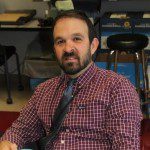 Fabio Alberto Hurtado was born in Havana, Cuba. He is currently the Dean of Academics and English teacher at Cannon School in Concord, NC where he lives with his wife, children, dog Boo, six hens, and a bantam black rooster. Fabio is currently working of a memoir of growing up as a Cuban-American boy. He holds an M.A. in Theology from Holy Apostles College & Seminary.
Fabio Alberto Hurtado was born in Havana, Cuba. He is currently the Dean of Academics and English teacher at Cannon School in Concord, NC where he lives with his wife, children, dog Boo, six hens, and a bantam black rooster. Fabio is currently working of a memoir of growing up as a Cuban-American boy. He holds an M.A. in Theology from Holy Apostles College & Seminary.


